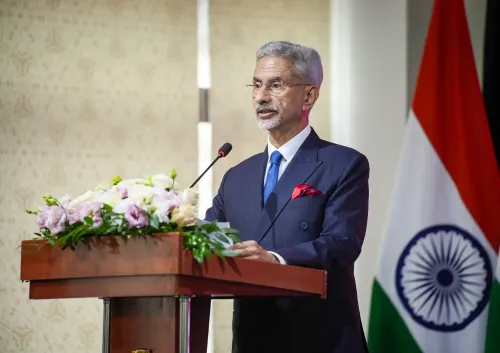Uttarakhand Makes History by Launching UCC Today

Synopsis
Key Takeaways
- Uttarakhand is the first state in India to implement the UCC.
- The UCC ensures equal property rights for sons and daughters.
- Polygamy will be prohibited under the UCC.
- Registration of marriage will be mandatory.
- All children will have equal rights, regardless of legitimacy.
New Delhi, Jan 27 (NationPress) Uttarakhand is poised to make history on Monday as it becomes the first state in India to implement the Uniform Civil Code (UCC).
The UCC will be enforced across the state and will also apply to Uttarakhand residents living outside its borders.
This significant legislation will be introduced at approximately 12:30 pm, with Chief Minister Pushkar Singh Dhami launching the UCC portal, just prior to Prime Minister Narendra Modi's visit to the state today.
The UCC guidelines that have been ratified by the Uttarakhand government have excluded contentious proposals for a separate mechanism to address disputes concerning personal laws.
The recommendations put forth by the Shatrughan Singh Committee for the UCC, initially presented to the Chief Minister on October 18, 2024, underwent several modifications.
The comprehensive 400-page document has been streamlined to under 100 pages, retaining only provisions related to the registration of marriage, divorce, inheritance, and live-in relationships, according to sources.
Consequently, the revised UCC regulations approved by the Uttarakhand government have eliminated the proposal for a distinct process to resolve disputes involving personal laws.
The UCC, which will be implemented today, guarantees equal property rights for both sons and daughters.
Under the UCC, polygamy will be banned, establishing monogamy as the standard under this groundbreaking legislation.
The UCC mandates that men aged 21 and women aged 18 must enter into marriage.
While marriages will be conducted according to the couple's religious customs, registration will be compulsory.
In another significant change, the law will remove the distinction between legitimate and illegitimate children, aiming to abolish this difference regarding property rights. Once the UCC is enacted, all children will be recognized as biological heirs.
The legislation will also ensure that children born through adoption, surrogacy, or assisted reproductive technology will be treated equivalently to biological children.
Upon a person's demise, the law will provide equal property rights to the spouse and children. Furthermore, equal rights will be granted to the deceased person's parents, ensuring their welfare.










